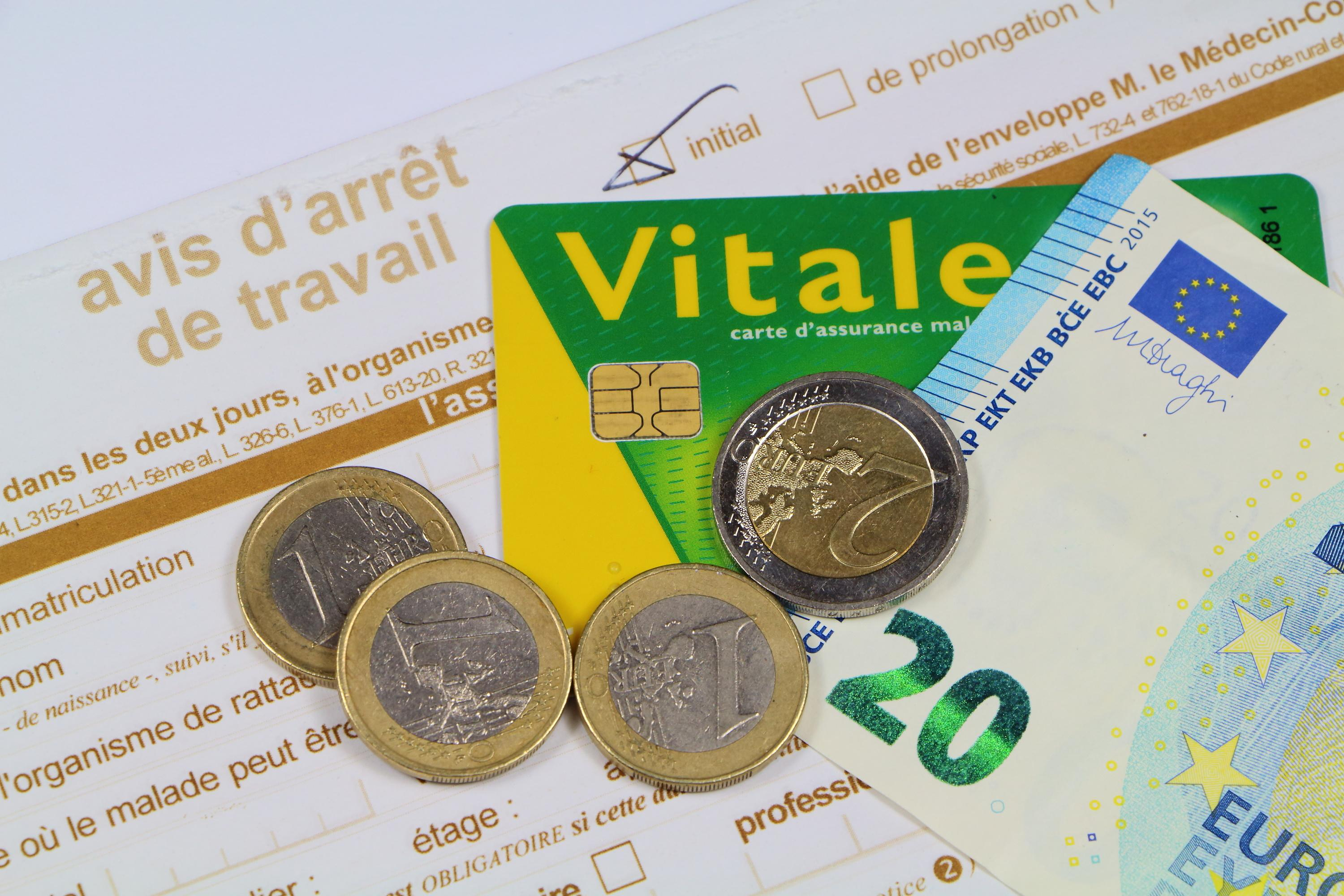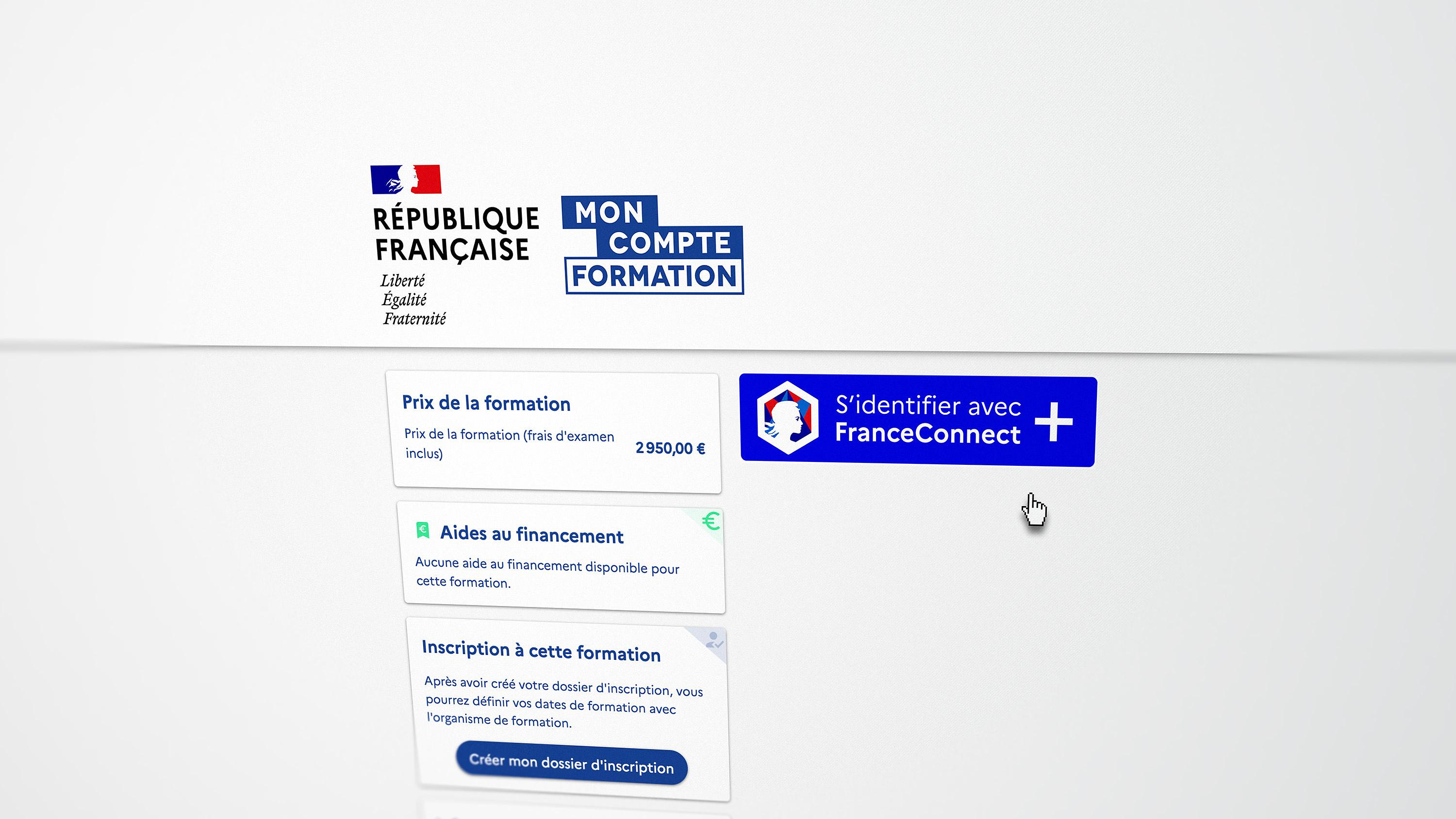Thursday October 19, four international arrest warrants were issued by a Parisian investigating judge against Fahd Jassem al-Freij, former Minister of Defense, Ali Abdallah Ayoub, former Chief of Staff of the army, Ahmed Mohamed Balloul, former commander of the air force, and Ali Safetli, former commander of the 64th helicopter brigade, for their role in the death of Salah About Nabout, a Franco-Syrian killed in 2017 by a barrel bomb ( a type of bomb filled with metal fragments).
According to the press release from the Syrian Center for Media and Freedom of Expression, civil party alongside Omar Abou Nabout, the son of the victim, 2000 air and ground raids shelled and destroyed the city of Daraa between the 3 and June 17, 2017. “This is the first time that senior Syrian army officials have been indicted for war crimes stemming from a military operation against civilians,” the statement said. A victory for the organization which represents the victims of the regime, as well as for Omar Abou Nabout, 27 years old, graduate of the Sorbonne and the ENS, in full preparation for the civil service exams.
LE FIGARO. - You were born in Syria, where you lived with your family before arriving in France. Can you tell me about your life there, after the revolution started in 2011 and the war started?
Omar ABOU NABOUT. - I was born in Daraa, in one of the first “revolutionary neighborhoods” in Syria, where residents began to demonstrate against the regime in 2011. I was 15 years old. Little by little I began to take an interest in the demonstrations and helping the injured. Then I became an activist, and a journalist. I documented bombings, human rights violations... I trained in the field.
In 2013, my father was imprisoned, even though he did not participate in the protests. During his youth in the 1980s, he was also an activist, opposed to the regime of Hafez al-Assad [the father of Bashar al-Assad]. This is also why he went to live in France for a few years, as well as to study the French language and literature that he had loved since his youth. When he returned to Syria, he became a French teacher, and he was careful to remain politically neutral. One day he went shopping and never came back. The Syrian regime imprisoned him without reason. That's when my family and I decided to leave Syria for Jordan: due to my father's French-Syrian nationality, we knew we could seek help from the embassy of France. The latter, as well as the French Red Cross, allowed us to find out which prison our father was in, and to have him released.
Also read: Justine Augier: “The Syrian spring cannot be erased”
However, when he was released, the borders with Jordan were closed, and he could not join you. What happened next ?
When my father was released, we were finishing our administrative procedures at the French embassy in Jordan. We were able to arrive in France in 2016, while maintaining contact with the embassy so that my father could come to Jordan. But in 2017, a helicopter bombed the house where he lived. On the first floor of the building was a school for many out-of-school children, the only one in the neighborhood that had not yet been destroyed.
When he died, I decided to file a complaint against the regime. I was 21 years old at the time, and I was learning French, integrating into French society, doing my studies, while taking care of my family for which I was responsible, being wool.
Also read: Syria, Vladimir Putin’s laboratory of warlike barbarism
Six years have passed since his death. How did this long battle to take legal action unfold?
When I asked the public prosecutor to open an investigation, I did not speak French at all. I remember it very well, I must have had an A1 or A2 level. We made a request, which was accepted on the basis of my father's dual nationality and sent to the investigating judge of the Paris judicial court, within the “crimes against humanity” unit. It was very intense and stressful, especially because the first years I was alone. I had to take care of putting the numerous witnesses of this crime in contact with justice. I then made a film to tell this story.
Years later, I met members of the Syrian Center for Media and Freedom of Expression (SCM). They were of great support in collecting information, preparing files... notably a report establishing the chain of command going back to the four generals of the Ministry of Defense (who are today targeted by the arrest warrants international, Editor’s note). In 2020, I then accepted that SCM became a civil party, in view of the contribution that its members provided.
From 2017 to today, five judges, three lawyers, a countless number of experts, Syrian, French, international, non-governmental organizations, witnesses including former soldiers now opposed to the regime, have provided their support in this case and allowed these warrants to be issued. I am really relieved today.
In recent years, numerous historic procedures, including the Koblenz trials which led to the conviction of two regime officials, have been launched by different courts in European countries, but also more recently by the International Court of Justice (ICJ). Is this an encouraging sign?
At the European level, Syrian victims of human rights violations are trying to activate European mechanisms to obtain justice. This is important work, especially driven by Syrian civil society in Europe, led by human rights organizations such as SCM. We hope that these efforts will continue, that European states will go even further, by making strong commitments against this regime, which for me is the most monstrous, the most criminal of the 21st century.
There are still demonstrations against the regime today in Suayda, in the south of the country: now the people are not only demanding freedom, but also justice. We must repair the chaos sown by the Syrian army, devoid of any hierarchy, which acts out of all control and violates the human rights of civilians with impunity.
What should we expect next?
This is just the beginning. The second stage of the procedure initiated will be the opening of a hearing, in the absence of the accused. This is the next fight, and it’s going to take time.
By then I plan to finish my studies. After studying international relations and political science, I am preparing to take the civil service exams to become a diplomat. It’s a way of saying thank you to France in my own way, for allowing us to find my father, to come to France, and to bring those responsible for his death to justice.

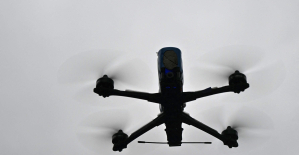 Russia: schools will train children to use drones at the start of the school year
Russia: schools will train children to use drones at the start of the school year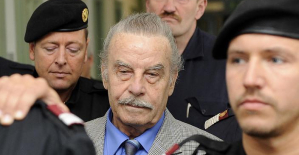 Austria: incestuous torturer Josef Fritzl, nicknamed the “national monster”, could soon be released
Austria: incestuous torturer Josef Fritzl, nicknamed the “national monster”, could soon be released An airline continues to treat a centenarian as a one-year-old baby
An airline continues to treat a centenarian as a one-year-old baby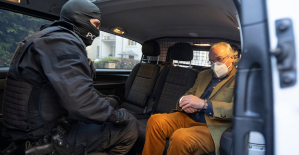 Germany: the trial of nine “Citizens of the Reich” conspirators begins this Monday
Germany: the trial of nine “Citizens of the Reich” conspirators begins this Monday Sánchez cancels his agenda and considers resigning: "I need to stop and reflect"
Sánchez cancels his agenda and considers resigning: "I need to stop and reflect" The Federal Committee of the PSOE interrupts the event to take to the streets with the militants
The Federal Committee of the PSOE interrupts the event to take to the streets with the militants Repsol: "We want to lead generative AI to guarantee its benefits and avoid risks"
Repsol: "We want to lead generative AI to guarantee its benefits and avoid risks" Osteoarthritis: an innovation to improve its management
Osteoarthritis: an innovation to improve its management Sanofi: demonstration in front of Paris headquarters against job cuts
Sanofi: demonstration in front of Paris headquarters against job cuts The Chinese car manufacturer BYD sets out to conquer France
The Chinese car manufacturer BYD sets out to conquer France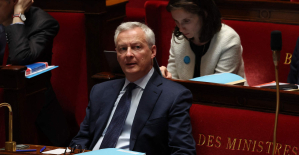 Public finances: after the deputies, Bruno Le Maire asks the senators for savings avenues
Public finances: after the deputies, Bruno Le Maire asks the senators for savings avenues Faced with opposition from London, a fund supported by Abu Dhabi abandons the purchase of the Daily Telegraph
Faced with opposition from London, a fund supported by Abu Dhabi abandons the purchase of the Daily Telegraph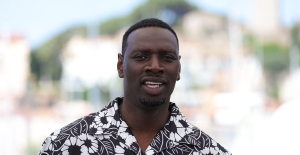 Omar Sy on all cultural fronts
Omar Sy on all cultural fronts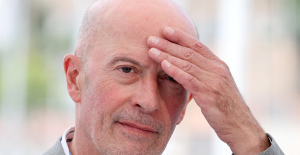 Jacques Audiard, Swann Arlaud, Benjamin Stora... A hundred men from cinema, theater and books in support of
Jacques Audiard, Swann Arlaud, Benjamin Stora... A hundred men from cinema, theater and books in support of Resale, scams and fake tickets: how not to get scammed before Taylor Swift concerts
Resale, scams and fake tickets: how not to get scammed before Taylor Swift concerts Isild Le Besco is not ready to file a complaint against Benoît Jacquot
Isild Le Besco is not ready to file a complaint against Benoît Jacquot Omoda 7, another Chinese car that could be manufactured in Spain
Omoda 7, another Chinese car that could be manufactured in Spain BYD chooses CA Auto Bank as financial partner in Spain
BYD chooses CA Auto Bank as financial partner in Spain Tesla and Baidu sign key agreement to boost development of autonomous driving
Tesla and Baidu sign key agreement to boost development of autonomous driving Skoda Kodiaq 2024: a 'beast' plug-in hybrid SUV
Skoda Kodiaq 2024: a 'beast' plug-in hybrid SUV The home mortgage firm rises 3.8% in February and the average interest moderates to 3.33%
The home mortgage firm rises 3.8% in February and the average interest moderates to 3.33% This is how housing prices have changed in Spain in the last decade
This is how housing prices have changed in Spain in the last decade The home mortgage firm drops 10% in January and interest soars to 3.46%
The home mortgage firm drops 10% in January and interest soars to 3.46% The jewel of the Rocío de Nagüeles urbanization: a dream villa in Marbella
The jewel of the Rocío de Nagüeles urbanization: a dream villa in Marbella Europeans: a senior official on the National Rally list
Europeans: a senior official on the National Rally list Blockade of Sciences Po: the right denounces a “drift”, the government charges the rebels
Blockade of Sciences Po: the right denounces a “drift”, the government charges the rebels Even on a mission for NATO, the Charles-de-Gaulle remains under French control, Lecornu responds to Mélenchon
Even on a mission for NATO, the Charles-de-Gaulle remains under French control, Lecornu responds to Mélenchon “Deadly Europe”, “economic decline”, immigration… What to remember from Emmanuel Macron’s speech at the Sorbonne
“Deadly Europe”, “economic decline”, immigration… What to remember from Emmanuel Macron’s speech at the Sorbonne These French cities that will boycott the World Cup in Qatar
These French cities that will boycott the World Cup in Qatar Football: the CAS suspends the sanction of Gabigol who will be able to play again
Football: the CAS suspends the sanction of Gabigol who will be able to play again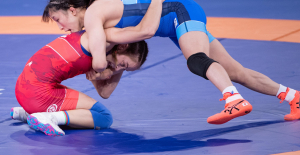 Wrestling: everything you need to know about the sport
Wrestling: everything you need to know about the sport Luis Enrique before Dortmund-PSG: “We must not see pressure as a threat”
Luis Enrique before Dortmund-PSG: “We must not see pressure as a threat”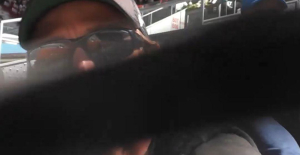 Tennis: the astonishing ploy of Medvedev’s coach to avoid being filmed in his box
Tennis: the astonishing ploy of Medvedev’s coach to avoid being filmed in his box






